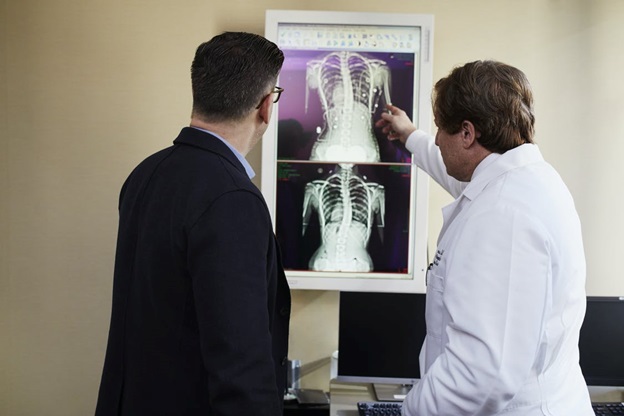Outpatient care, often known as ambulatory care, refers to procedures and treatments that do not require hospitalization. The services are growing in popularity primarily because of the rapid expansion in technology. Blood tests results that used to take days now take merely a few hours. Outpatient facilities can even perform minimally invasive surgeries without having patients stay overnight. Moreover, outpatient clinics also have highly trained staff, thus, restoring reliability and improving efficiency. Please, Note That The dual diagnosis treatment is for people to get care for a substance use disorder and a mental illness at the same time.
Although several people have the option to choose outpatient services, some treatments mandate hospitalization. In that case, outpatient services won’t be of much use. However, that does not hinder their popularity. Now let’s talk about the various kinds of outpatient services available.
1. Rehabilitation
Outpatient rehabilitation services refer to recovery from injuries, illnesses, addictions, or surgery. In most cases, you start receiving care at hospitals, but several therapies continue post your discharge. For instance, depending on the extent of the severity of your surgery, you might be needing a physical therapist for additional assistance. Similarly, you may get counseling at a rehabilitation facility when recovering from a mental illness or drug addiction. Treatments can be both inpatient and outpatient, depending on the criticality of your condition.
You can check out an outpatient program for rehabilitation, preferably general, intensive, and partial hospitalization services. Consulting a professional before deciding which program to opt for and which services to take is always a good idea.
2. General outpatient
General outpatients are those who visit physicians without any reference from other doctors or a diagnosis. They see the outpatient departments’ medical facilities on their own and seek help for various ailments and illnesses. General outpatient services usually include:
- X-rays
- Scans
- Minor surgeries
- Oxygen assessment
- Lung function test
- Chemotherapy
General outpatient is a high-quality service, providing patients with prompt and expert care. Therefore, every hospital must ensure to hire well-motivated and well-trained staff who are compassionate about patient care.
3. Emergency outpatient
As the name suggests, emergency outpatient services refer to a person’s medical assistance due to an emergency. Emergency, here, could constitute a sudden illness or accident. Emergency outpatient is also the most common outpatient service used.
Every hospital and medical facility has a separate room known as the emergency room or the ER. It is where all patients suffering from traumatic experiences get care and treatment. All professionals in the ER are highly trained and have expertise in inpatient care.
4. Reference outpatient
Patients referred to other outpatient departments for a specific diagnosis or other illness fall under referred outpatient services. A person could be receiving treatment from more than one source and receiving diagnostic tests and other examinations from hospitals under legal doctor’s prescription. Stay safe when working in the medical field by using radiation protection products. Visit the website to learn more.
A significant proportion of individuals feel that referred services are incredibly beneficial and help in improving health. However, many people also consider referrals avoidable since it is an additional, unnecessary expense. Improved procedural training and better communication between supervisors and specialists might help in increasing efficiency and lowering costs.
5. Cardiac catheterization centers
Cardiac catheterization centers or ‘cardiac cath lab’ are specific rooms in hospitals and other medical facilities where doctors treat patients diagnosed with cardiovascular diseases. Most doctors who work at cardiac labs specialize in performing minimally invasive interventional cardiovascular procedures from a Vascular Surgeon.
Other than senior doctors, lab nurses and technicians are also crucial members of the team. Nurses work closely with doctors and are primarily responsible for patient care. In comparison, technicians assist doctors with procedures and treatments.
6. Chemotherapy and radiation therapy centers
Doctors at chemotherapy and radiation therapy centers treat cancer patients. These treatments don’t necessarily involve an overnight stay unless the patient’s condition is critical.
Chemotherapy and radiation therapy are two different procedures involving different specialists for both. However, under a concurrent cancer treatment plan, a patient can get both at the same time.
7. Service time
Service time comprises the number of hours to diagnose a patient, including history checks, examinations, case notes, and prescription writing. Several doctors also include signing applications for particular medication as part of their service time as well.
On average, doctors in hospitals spend nearly 45-47 hours weekly with patients.
8. Women’s health
Women’s health outpatient services include a team of women specially designed and designated to provide care to female patients. These services mostly incorporate any gynecologist or obstetrics services.
Women’s outpatient services are the solution to the great demand of women patients for an all women’s treatment team, especially in the US. However, for women’s outpatient services to be effective, teamwork and collaboration are core competencies.
Conclusion
More and more people are now choosing outpatient services because of their improved quality and trouble-free factor. However, most of the time, doctors recommend which service center to choose for your treatment but not always. In that case, it is essential to choose the right center to provide the service you need. Some factors you should consider are whether the center covers insurance? Is the center clean and organized? Does the center have sufficient equipment and staff in case you need emergency treatment? And most importantly, will the center provide you with all the care you need?
Once you have answers to the queries above, finding the right center for your needs will become much more manageable. Always do thorough research before approaching any doctor or treatment center, irrespective of whether they provide inpatient or outpatient services.

